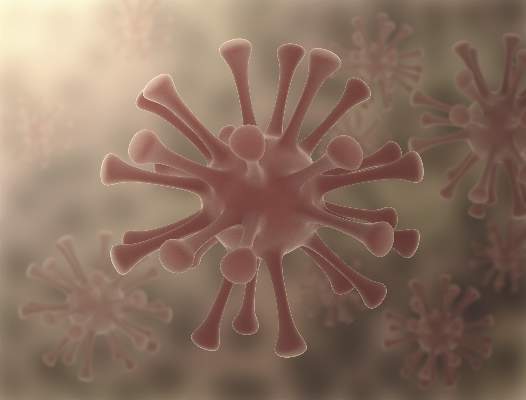User login
SAN FRANCISCO – Sustained virologic response in patients with genotype 3 hepatitis C virus infection and advanced fibrosis or cirrhosis was achieved in 88% of those treated with a daclatasvir-based triple drug regimen for 12 weeks and 96% of those treated 16 weeks, according to findings from a phase IIIb study presented as a late breaker at the annual meeting of the American Association for the Study of Liver Diseases.
In this multinational trial, called ALLY-3+, 50 patients with genotype 3 hepatitis C virus (HCV) infection were randomized to 12 weeks or 16 weeks of a triple drug regimen containing 60 mg once-daily of daclatasvir (DCV), 400 mg once-daily of sofosbuvir (SOF), and weight-based ribavirin (RBV), reported Dr. Vincent Leroy, Centre Hospitalier Universitaire (CHU) de Grenoble, La Tronche, France. Of those enrolled, 74% were treatment experienced, of which 5 patients (10%) had relapsed on SOF plus RBV. Most patients (72%) had cirrhosis and 52% had a baseline viral load greater than 6 million IU/mL.
The primary endpoint was sustained virologic response (SVR), which was evaluated at 4 weeks post treatment.
By intention-to-treat analysis, the SVR rates were 88% for the 24 patients randomized to the 12-week regimen and 92% for the 26 patients randomized to the 16-week regimen. Four of the 5 patients with prior relapse on SOF/RBV treated for 16 weeks achieved SVR.
Of those with cirrhosis, the SVR endpoint was reached in 83% of those treated for 12 weeks and 89% of those treated for 16 weeks. Of those with advanced fibrosis, the SVR rates were 100% whether they were treated for 12 or 16 weeks.
Although there were no virologic breakthroughs, relapse was observed in two of those treated for 16 weeks and two of those treated for 12 weeks.
The treatment was well tolerated, according to Dr. Leroy. He reported that there were no discontinuations due to adverse events. The most common adverse events were insomnia in 30%, fatigue in 26%, and headache in 24%. One patient experienced a grade 3 reduction in hemoglobin.
The ALLY-3+ study follows the previously reported ALLY-3 trial in which the study combination was DCV and SOF alone. This combination produced SVR in 96% of those genotype 3 patients without cirrhosis after 12 weeks of therapy. However, the SVR rate fell to 63% in those with cirrhosis. The aim of this study was to determine whether the addition of RBV could improve SVR rates in patients with genotype 3 HCV.
“HCV genotype-3-infected patients are a challenging population in urgent need of optimally effective therapies,” Dr. Leroy explained. Although ALLY3 demonstrated that high rates of SVR can be achieved in this population in the absence of cirrhosis with DCV + SOF, ALLY-3+ demonstrates that the addition of RBV in those with cirrhosis brings SVR rates to comparable rates of SVR, particularly when treatment is extended to 16 weeks. Dr. Leroy called this triple-drug regimen “generally well tolerated.”
“These results are quite impressive in a difficult group of patients,” said, Dr. Anna S.F. Lok, professor of hepatology, University of Michigan, Ann Arbor, and moderator of the late-breaker oral sessions.
Dr. Leroy reported a financial relationship with AbbVie, Bristol-Myers Squibb (the trial sponsor), Gilead, Janssen, and Merck Sharpe & Dohme.
SAN FRANCISCO – Sustained virologic response in patients with genotype 3 hepatitis C virus infection and advanced fibrosis or cirrhosis was achieved in 88% of those treated with a daclatasvir-based triple drug regimen for 12 weeks and 96% of those treated 16 weeks, according to findings from a phase IIIb study presented as a late breaker at the annual meeting of the American Association for the Study of Liver Diseases.
In this multinational trial, called ALLY-3+, 50 patients with genotype 3 hepatitis C virus (HCV) infection were randomized to 12 weeks or 16 weeks of a triple drug regimen containing 60 mg once-daily of daclatasvir (DCV), 400 mg once-daily of sofosbuvir (SOF), and weight-based ribavirin (RBV), reported Dr. Vincent Leroy, Centre Hospitalier Universitaire (CHU) de Grenoble, La Tronche, France. Of those enrolled, 74% were treatment experienced, of which 5 patients (10%) had relapsed on SOF plus RBV. Most patients (72%) had cirrhosis and 52% had a baseline viral load greater than 6 million IU/mL.
The primary endpoint was sustained virologic response (SVR), which was evaluated at 4 weeks post treatment.
By intention-to-treat analysis, the SVR rates were 88% for the 24 patients randomized to the 12-week regimen and 92% for the 26 patients randomized to the 16-week regimen. Four of the 5 patients with prior relapse on SOF/RBV treated for 16 weeks achieved SVR.
Of those with cirrhosis, the SVR endpoint was reached in 83% of those treated for 12 weeks and 89% of those treated for 16 weeks. Of those with advanced fibrosis, the SVR rates were 100% whether they were treated for 12 or 16 weeks.
Although there were no virologic breakthroughs, relapse was observed in two of those treated for 16 weeks and two of those treated for 12 weeks.
The treatment was well tolerated, according to Dr. Leroy. He reported that there were no discontinuations due to adverse events. The most common adverse events were insomnia in 30%, fatigue in 26%, and headache in 24%. One patient experienced a grade 3 reduction in hemoglobin.
The ALLY-3+ study follows the previously reported ALLY-3 trial in which the study combination was DCV and SOF alone. This combination produced SVR in 96% of those genotype 3 patients without cirrhosis after 12 weeks of therapy. However, the SVR rate fell to 63% in those with cirrhosis. The aim of this study was to determine whether the addition of RBV could improve SVR rates in patients with genotype 3 HCV.
“HCV genotype-3-infected patients are a challenging population in urgent need of optimally effective therapies,” Dr. Leroy explained. Although ALLY3 demonstrated that high rates of SVR can be achieved in this population in the absence of cirrhosis with DCV + SOF, ALLY-3+ demonstrates that the addition of RBV in those with cirrhosis brings SVR rates to comparable rates of SVR, particularly when treatment is extended to 16 weeks. Dr. Leroy called this triple-drug regimen “generally well tolerated.”
“These results are quite impressive in a difficult group of patients,” said, Dr. Anna S.F. Lok, professor of hepatology, University of Michigan, Ann Arbor, and moderator of the late-breaker oral sessions.
Dr. Leroy reported a financial relationship with AbbVie, Bristol-Myers Squibb (the trial sponsor), Gilead, Janssen, and Merck Sharpe & Dohme.
SAN FRANCISCO – Sustained virologic response in patients with genotype 3 hepatitis C virus infection and advanced fibrosis or cirrhosis was achieved in 88% of those treated with a daclatasvir-based triple drug regimen for 12 weeks and 96% of those treated 16 weeks, according to findings from a phase IIIb study presented as a late breaker at the annual meeting of the American Association for the Study of Liver Diseases.
In this multinational trial, called ALLY-3+, 50 patients with genotype 3 hepatitis C virus (HCV) infection were randomized to 12 weeks or 16 weeks of a triple drug regimen containing 60 mg once-daily of daclatasvir (DCV), 400 mg once-daily of sofosbuvir (SOF), and weight-based ribavirin (RBV), reported Dr. Vincent Leroy, Centre Hospitalier Universitaire (CHU) de Grenoble, La Tronche, France. Of those enrolled, 74% were treatment experienced, of which 5 patients (10%) had relapsed on SOF plus RBV. Most patients (72%) had cirrhosis and 52% had a baseline viral load greater than 6 million IU/mL.
The primary endpoint was sustained virologic response (SVR), which was evaluated at 4 weeks post treatment.
By intention-to-treat analysis, the SVR rates were 88% for the 24 patients randomized to the 12-week regimen and 92% for the 26 patients randomized to the 16-week regimen. Four of the 5 patients with prior relapse on SOF/RBV treated for 16 weeks achieved SVR.
Of those with cirrhosis, the SVR endpoint was reached in 83% of those treated for 12 weeks and 89% of those treated for 16 weeks. Of those with advanced fibrosis, the SVR rates were 100% whether they were treated for 12 or 16 weeks.
Although there were no virologic breakthroughs, relapse was observed in two of those treated for 16 weeks and two of those treated for 12 weeks.
The treatment was well tolerated, according to Dr. Leroy. He reported that there were no discontinuations due to adverse events. The most common adverse events were insomnia in 30%, fatigue in 26%, and headache in 24%. One patient experienced a grade 3 reduction in hemoglobin.
The ALLY-3+ study follows the previously reported ALLY-3 trial in which the study combination was DCV and SOF alone. This combination produced SVR in 96% of those genotype 3 patients without cirrhosis after 12 weeks of therapy. However, the SVR rate fell to 63% in those with cirrhosis. The aim of this study was to determine whether the addition of RBV could improve SVR rates in patients with genotype 3 HCV.
“HCV genotype-3-infected patients are a challenging population in urgent need of optimally effective therapies,” Dr. Leroy explained. Although ALLY3 demonstrated that high rates of SVR can be achieved in this population in the absence of cirrhosis with DCV + SOF, ALLY-3+ demonstrates that the addition of RBV in those with cirrhosis brings SVR rates to comparable rates of SVR, particularly when treatment is extended to 16 weeks. Dr. Leroy called this triple-drug regimen “generally well tolerated.”
“These results are quite impressive in a difficult group of patients,” said, Dr. Anna S.F. Lok, professor of hepatology, University of Michigan, Ann Arbor, and moderator of the late-breaker oral sessions.
Dr. Leroy reported a financial relationship with AbbVie, Bristol-Myers Squibb (the trial sponsor), Gilead, Janssen, and Merck Sharpe & Dohme.
AT THE LIVER MEETING 2015
Key clinical point: Daclatasvir plus sofosbuvir and ribavirin (DCV/SOF/RBV) achieves high sustained virologic response (SVR) rates in patients with hepatitis C virus (HCV) infection and advanced compensated fibrosis or cirrhosis.
Major finding: SVR rates in a phase IIIb trial with DCV/SOF/RBV climbed from 88% for those treated for 12 weeks to 96% for those treated for 16 weeks.
Data source: Multicenter open-label phase IIIb trial.
Disclosures: Dr. Leroy reported a financial relationship with AbbVie, Bristol-Myers Squibb (the trial sponsor), Gilead, Janssen, and Merck Sharpe & Dohme.

